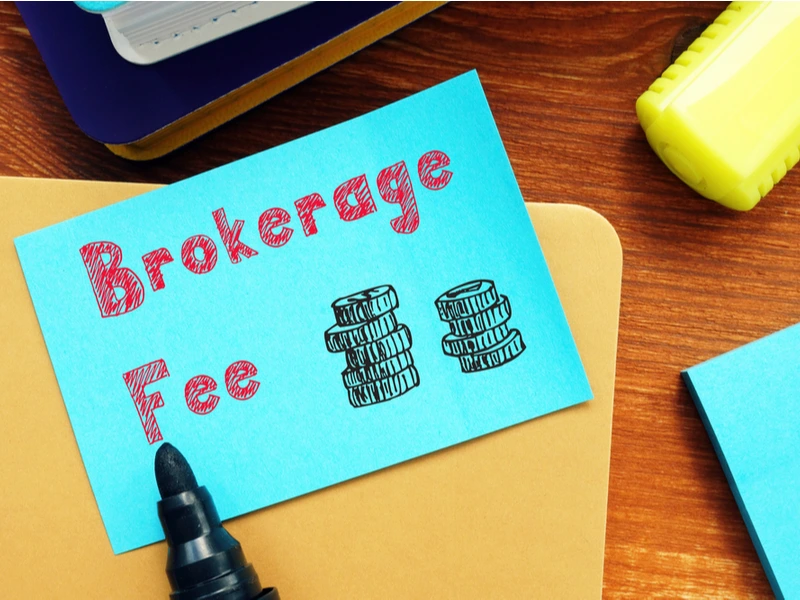
Stock trading involves different types of fees that an investor or trader must pay for. Some of them include brokerage fees, Security Transaction Tax (STT), stamp duty, service tax, etc. Among these, the brokerage charge and STT are two of the charges that investors must always keep a close watch on. Brokers charge brokerage fees to investors. These are agents who help investors/traders in buying and selling securities on a stock exchange. Against their services, brokers charge a certain fee, which is known as brokerage.
Here, we will try to understand more about brokerage charges and how these are calculated in the stock markets.
Brokerage charges based on type of broker
To understand brokerage charges that are applicable on stock market trades, an investor/trader must first learn about the type of broker that he/she is availing services from.
There are two broad categories of brokers and the brokerage charges applicable on trades will depend on which of these two categories the broker falls under. These categories are based on the services offered.
- Full-service brokers:
These brokers offer all-inclusive services, such as:
- stock trading assistance
- currency trading
- commodities trading
- research
- managing sales and assets of investors
- expert advice
- assets required for banking
These traditional brokers charge anywhere between 0.01% to 0.50% for delivery as well as intraday trading.
- Discount brokers:
Discount brokers generally provide an efficient trade execution platform for dealing in stocks and commodities. These new-age brokers offer lower charges but may not necessarily offer investment advice.
They charge a fixed brokerage fee per trade:
For example – a flat brokerage of Rs. 10 or Rs. 50 for intraday and delivery trading.
Some discount brokers may not charge any fees for delivery trading.
Calculation of brokerage fees
Every broker or broking firm will specify the brokerage fees in the contract with the investor or trader. There are 3 commonly available brokerage plans in India:
- Unlimited monthly trading plan
- Brokerage as a percentage of volume traded
- Flat per-trade brokerage fee
Discount brokers may generally offer Option 1 or 3. In case of a flat brokerage fee per trade, irrespective of the volume or trade value, the broker will charge a fixed brokerage cost per order executed. The traded value could be Rs. 1,000 or even Rs. 10,00,000, but the brokerage applicable will remain flat.
Some discount brokers may offer the unlimited monthly trading plan, which involves a flat fee for monthly or yearly plans. These plans allow investors to make unlimited trades within the period and are ideal for heavy traders.
While the first and third brokerage categories are easily understandable, here is an example of calculating brokerage as a percentage of volume traded.
Suppose an investor purchases 1000 shares of Infosys at Rs. 500 each. He sells these shares after a week at Rs. 550 each. Thus, the value of this trade is:
= (1000 x 500) + (1000 x 600)
= ( 5,00,000 + 6,00,000)
= 11,00,000
Since this is a delivery trade, a standard brokerage of say 0.4% is applicable. Thus, the brokerage charges can be calculated by applying this percentage on the trade value:
= 11,00,000 x 0.4%
= 4,400
So, an investor, for buying and selling 1000 shares of Infosys, will have to pay a brokerage of Rs. 4,400. Thus, if an investor trades for a lower volume, he has to pay less brokerage.
Many brokerage houses allow investors to negotiate the brokerage charges, thus giving investors an opportunity to make the most of the initial capital while starting off with stock market investments.
Some of the other charges/fees apart from brokerage charges that stock market investors must be aware of are:
- Securities Transaction Tax/STT
STT is a tax charged during purchase and sale of securities that are listed on stock exchanges. This is a tax applicable on stock market trades and is dependent on the trading category. If it is an equity delivery transaction, STT of 0.1% on the traded value will be applicable. STT of 0.05% will be applicable in case of options trading.
- Goods and Services tax/GST
Currently, 18% (9% for central government and 9% for state) of GST is applicable on the brokerage charges.
- Stamp duty
The stamp duty fee is applied on the transaction value for securities transactions.
- SEBI turnover fees
SEBI levies turnover fees on all the securities transactions that are executed in the stock market. This is applied as a percentage on the trade value.
Conclusion
The above information will help investors/traders understand the extent of brokerage charges, along with its calculation when dealing in the stock market. It can also help investors choose the right broker. To attract more traders and investors, brokers may offer lower brokerage for higher volumes. However, before selecting a broker, investors must carefully look into the charges applicable, along with the conditions surrounding these charges.
FAQs
To pick the right stock broker while investing in the stock markets, you can look at factors such as brokerage charges, customer feedback, reputation, ease of service, etc.
A stock broker plays the role of an intermediary between investors or traders and the stock exchanges, facilitating buying and selling of securities. For this facility, the stock broker charges a fee, also known as brokerage charges to investors.
Brokerage charges can impact your stock investment returns, since different brokers charge different fees for their services. Some brokers may apply a percentage on the volume traded, whereas others may apply a fixed sum irrespective of volume.
To invest in the stock markets, you must have a trading and demat account. You can download the Fisdom app to open these accounts and begin investing. It is also important to have some basic knowledge of the stock markets before investing.
Due to digitization of stock transactions, most brokers are switching to the online mode. Most online stock brokers offer maximum safety and security of transactions along with easy reference of transaction details.


























